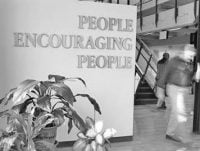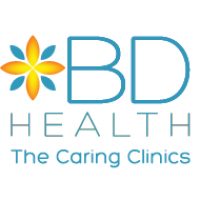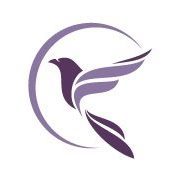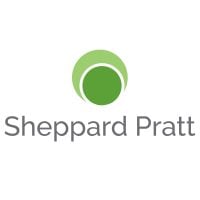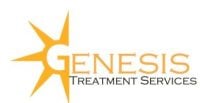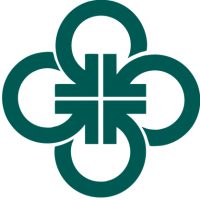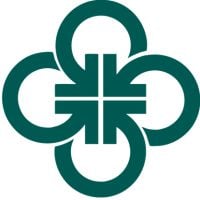DWI Long Term Residential Facility
Drug Rehab Center in Baltimore, Maryland
The Maryland based drug rehab centre is CARF accredited and provides residential levels of care for a wide range of addictions in a safe and comfortable environment, allowing individuals to access high quality treatment to help them achieve sobriety.
Multiple patients have reported DWI Long Term Residential Facility as permanently closed.
Research other rehabs in Baltimore, Maryland, or get help finding an open facility.
About DWI Long Term Residential Facility in Maryland
DWI Long Term Residential Facility, a private rehab situated in Baltimore, Maryland, specializes in treating individuals struggling with alcoholism, drug addiction, opioid addiction, and substance abuse. With a history of providing comprehensive care, the facility focuses on helping clients achieve lasting recovery through evidence-based treatment approaches.
• CARF accreditation ensures the facility meets rigorous standards of quality and effectiveness in addiction treatment.
• Residential treatment provides a structured environment that promotes healing and skill development for long-term sobriety.
• Individualized treatment plans address each client's unique needs, including co-occurring mental health disorders.
• Comprehensive services include drug rehabilitation programs, counseling, and individual and group therapy sessions.
DWI Long Term Residential Facility holds accreditation from the Commission on Accreditation of Rehabilitation Facilities (CARF), demonstrating its commitment to delivering high-quality, effective addiction treatment services. The facility's team of experienced professionals works collaboratively to create personalized treatment plans that cater to each individual's specific needs and goals.
The facility specializes in treating a range of substance use disorders, including alcoholism, opioid addiction, and drug addiction. To address these challenges, DWI Long Term Residential Facility offers various levels of care, with a primary focus on residential treatment, which allows clients to immerse themselves in a supportive and structured environment conducive to recovery.
Genders
Ages
Modality
Additional
Accreditations

CARF
The Commission on Accreditation of Rehabilitation Facilities (CARF) is a non-profit organization that specifically accredits rehab organizations. Founded in 1966, CARF's, mission is to help service providers like rehab facilities maintain high standards of care.
Conditions and Issues Treated
Substance abuse creates problems that affect people in Baltimore, MD on many levels. First, substance abuse affects the individual who is abusing drugs or alcohol. This can result in health problems, including heart damage and overdose. Substance abuse also affects the user’s family, friends, co-workers, classmates, or peers. These people feel frustrated because they do not know how to help their loved ones struggling with addiction. At the same time, the addict cannot control his behavior. Lastly, friends and family members of addicts are affected financially by substance abuse.
The good news is that effective treatments can help prevent substance abuse or treat its effects on the user. These treatments, which include behavioral therapy and counseling sessions, target the underlying causes of substance abuse, helping users achieve sobriety so they can regain control over their lives. They also teach users to cope with stress in ways other than using drugs or alcohol.
Opioid addiction has become a significant health problem in the United States. When a person’s life becomes unmanageable because of an opioid addiction, treatment can help them get sober. Treatment includes medical care and counseling.
“With so many people struggling with opioid addiction, we need more care and attention for those who want to quit. Opioid addicts often take opioids when they experience a painful injury – that’s how the cycle starts! When someone begins taking their medication differently than prescribed or takes an excessive amount of drugs, it means they’re hooked on drugs and in danger of overdosing.
The most successful way to beat this is through detoxing from these types treatments at DWI Long Term Residential Facility in . Most facilities start by using medical support during the process while providing counseling services; rehabilitation comes later on after treatment has been completed successfully.
Levels of Care Offered
This center offers a variety of custom treatment tailored to individual recovery. Currently available are Drug Rehab, Residential, with additional therapies available as listed below.
Residential treatment programs are those that offer housing and meals in addition to substance abuse treatment. Rehab facilities that offer residential treatment allow patients to focus solely on recovery, in an environment totally separate from their lives. Some rehab centers specialize in short-term residential treatment (a few days to a week or two), while others solely provide treatment on a long-term basis (several weeks to months). Some offer both, and tailor treatment to the patient’s individual requirements.
Therapies & Programs
Individual therapy is a form of counseling where you meet with a trained professional one-on-one. Meeting with a therapist in this setting allows for a personal and trusting relationship to be built. This allows the patient to open up about sensitive or private issues they may not feel comfortable discussing in a group. Individual therapy helps identify the root causes of your addiction, which can help prevent relapse.
Couples therapy for drug addiction is a unique form of therapy that allows family members to work through the emotional issues of their loved one’s addiction together. Family members can support each other while learning how to cope with the addiction and encourage healthy changes. The two will work with a therapist to learn how the addiction affects themselves and the relationship.
Family therapy is often done alongside drug treatment to help addicts stay sober. The goal of family therapy for drug addiction is to create an environment where communication can happen without judgment, hostility, or blame. The therapist will sit with the family so they can learn how to communicate differently and provide new tools for dealing with emotions so that people don’t want to drink or do drugs. It’s important for families to focus on relapse prevention plans during treatment so that if the addict feels like they want to use again, they’ll know what steps they need to take together to prevent it from happening again in the future.
Group therapy sessions are another common addiction recovery service. These group sessions typically involve six to 12 addicts who meet regularly with a trained professional for support and guidance.
During these sessions, the group shares their experiences with one another and provides feedback that can help each member avoid relapse or overcome specific obstacles they are facing in their recovery process. With this type of support and guidance, addicts can feel like they are part of a community that understands their struggles and will help them get through the hard times.
Additional Details
Specifics, location, and helpful extra information.
Baltimore, Maryland 21252 Phone Number(410) 887-1503 Meta DetailsUpdated April 15, 2024
Staff Verified
DWI Long Term Residential Facility Patient Reviews
There are no reviews yet. Be the first one to write one.
Baltimore, Maryland Addiction Information
For the past decade, Maryland's rate of drug use and abuse has significantly increased. The overdose rate is currently higher than the national average. This epidemic is due to the many industries where manual labor is required. As soon as prescription opioids were more readily accessible a large part of manual workers started using–and eventually abusing–the painkillers.
According to recent statistics, there are around 33,000 people who are addicted to drugs in Baltimore. Heroin-related overdose deaths are quite high in Baltimore, at 837 per 100,000 residents in 2016. Baltimore's most commonly abused drugs include heroin, cocaine, and marijuana. The people of Baltimore are friendly and welcoming, and there's always something going on. If you're looking for a place to start fresh, Baltimore is the perfect place.
Treatment in Nearby Cities
- Owings Mills, MD (0.7 mi.)
- Delmar, MD (92.5 mi.)
- Gaithersburg, MD (30.1 mi.)
- Edgewood, MD (25.3 mi.)
- Capitol Heights, MD (37.9 mi.)
Centers near DWI Long Term Residential Facility
The facility name, logo and brand are the property and registered trademarks of DWI Long Term Residential Facility, and are being used for identification and informational purposes only. Use of these names, logos and brands shall not imply endorsement. RehabNow.org is not affiliated with or sponsored by DWI Long Term Residential Facility.



